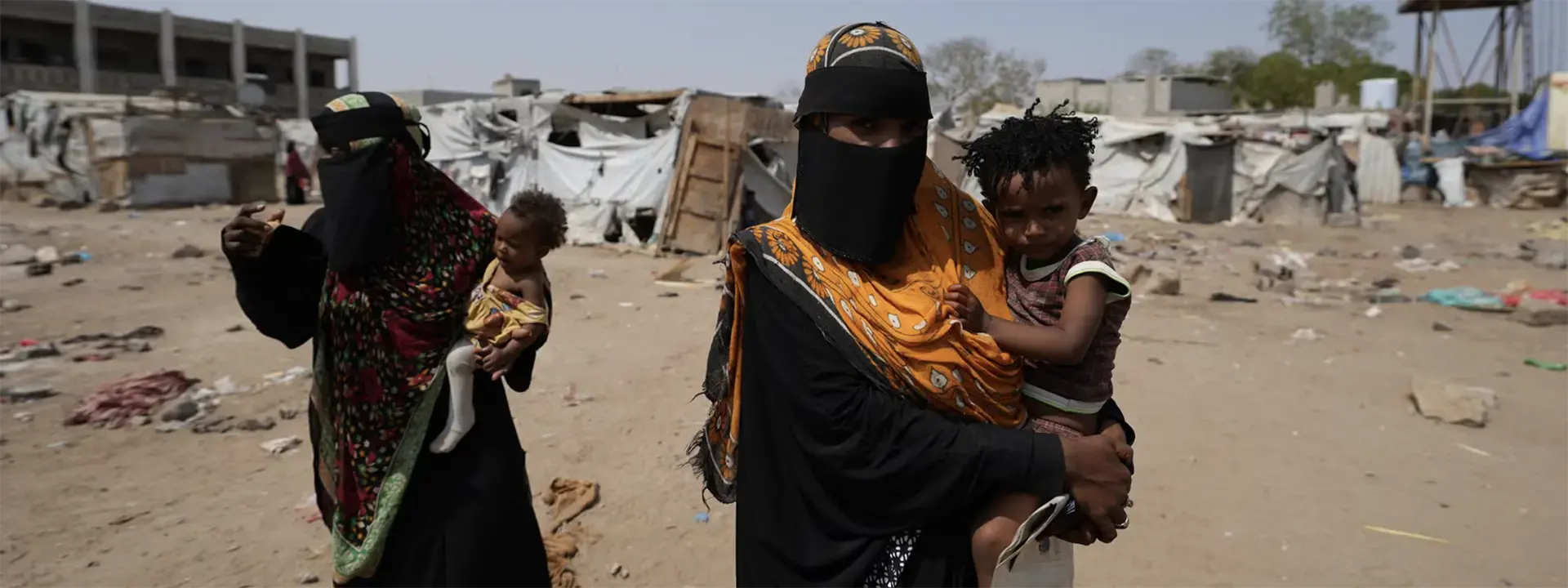After more than a decade of crisis and conflict, 19.5 million people in Yemen–nearly 80 percent of whom are women and children–desperately need humanitarian assistance. They lack access to food, clean water, healthcare, and shelter, with malnutrition rates reaching record highs.
Protracted conflict and economic decline have devastated Yemen’s healthcare system. Around 40 percent of health facilities are partially or completely non-functional, leaving women and girls without critical care. Every two hours a woman dies during pregnancy, childbirth, and its aftermath from complications that are largely preventable with access to skilled care. Only 1 in 5 functioning health facilities provides maternal and child health services.
Violence plagues women and girls–increasing by 30 percent in 2024–with displaced women and girls, female-headed households, and those with disabilities particularly at risk. In 2025, an estimated 6.2 million women and girls urgently need access to services to prevent and respond to gender-based violence.
UNFPA is the sole provider of life-saving reproductive health medicines in Yemen, and with partners, continues efforts to expand access to life-saving maternal health and protection services for women and girls, including through more than 125 supported health facilities and 40 safe spaces.
UNFPA also leads the rapid response mechanism, in partnership with UNICEF and WFP, providing emergency relief to newly displaced people. In 2024, more than 450,000 people received ready-to-eat food rations, hygiene supplies, and women’s sanitary items in response to climate-induced shocks.
Read more:


